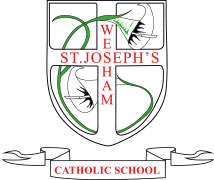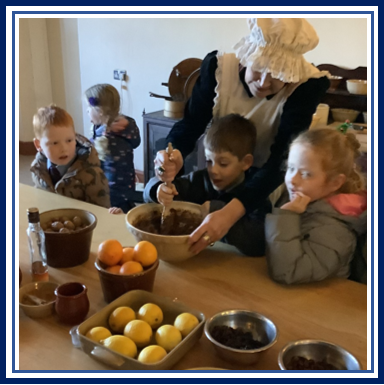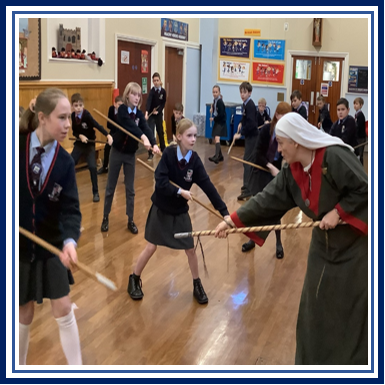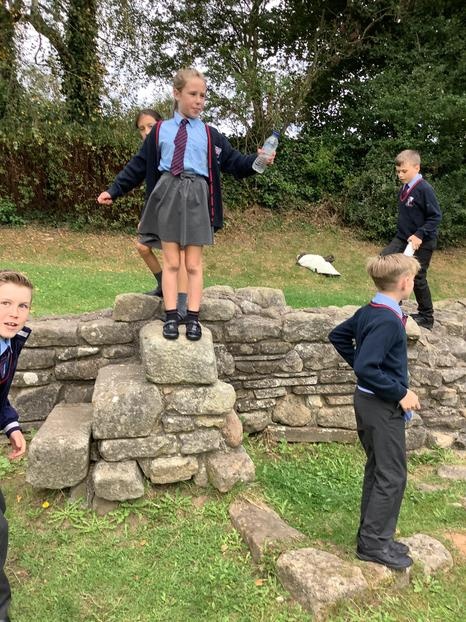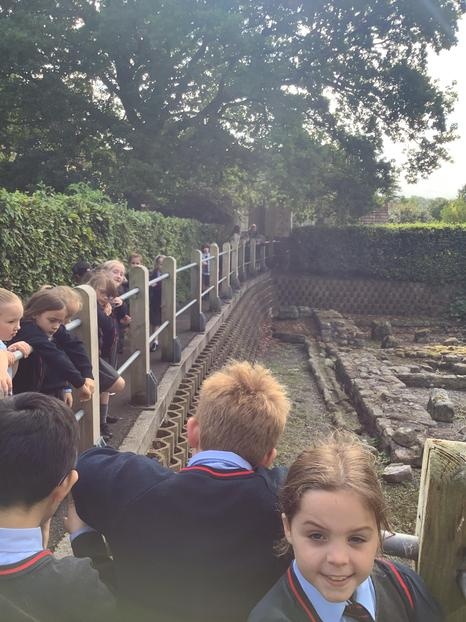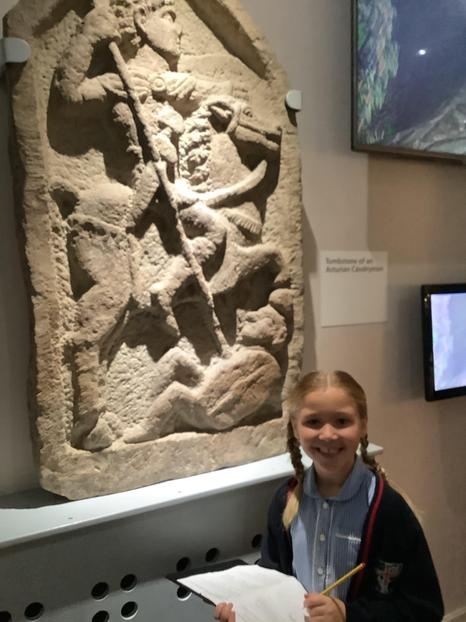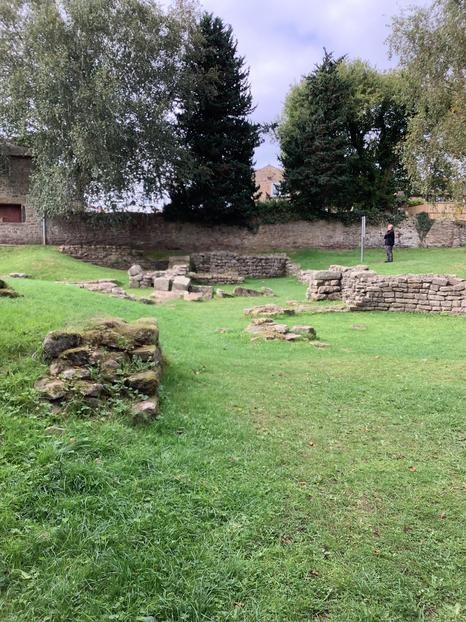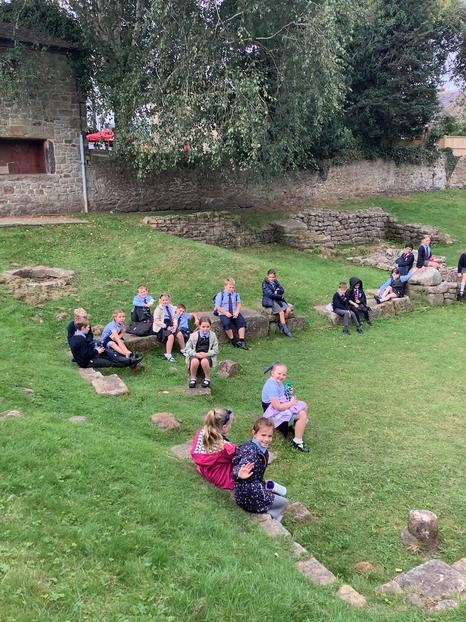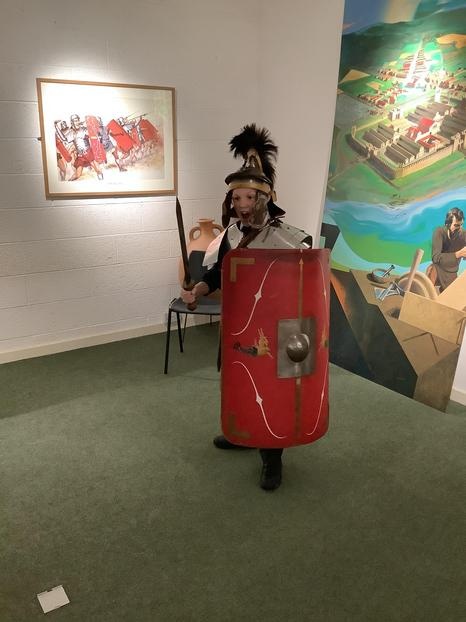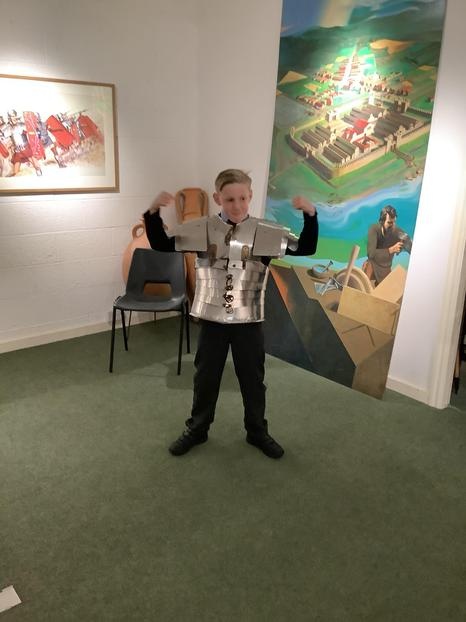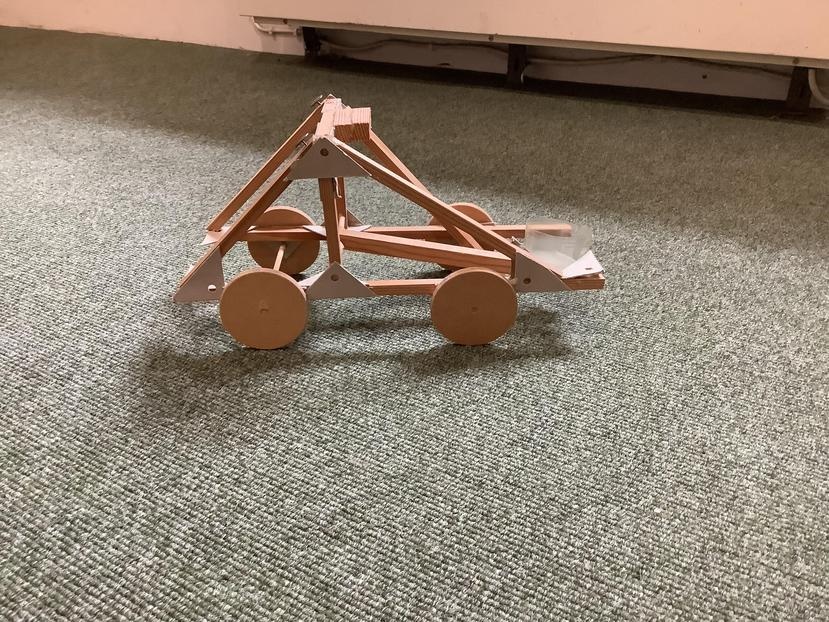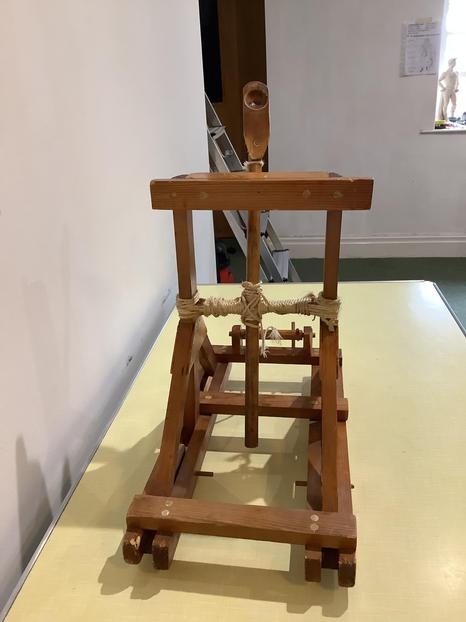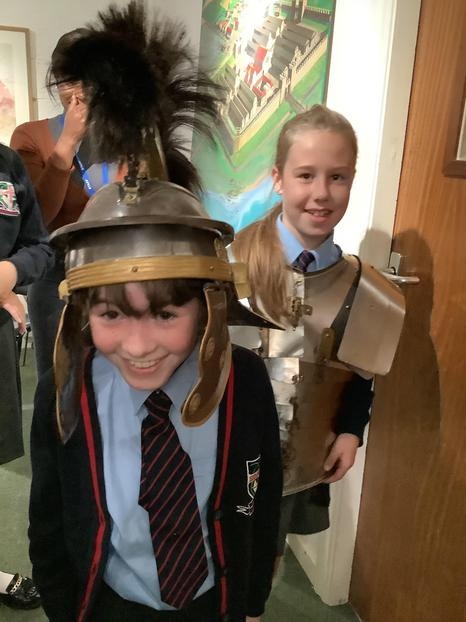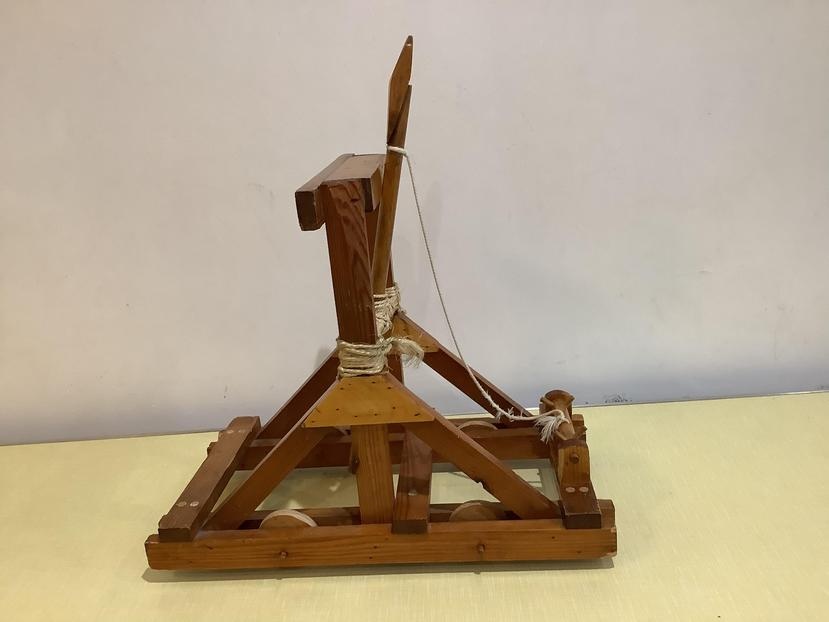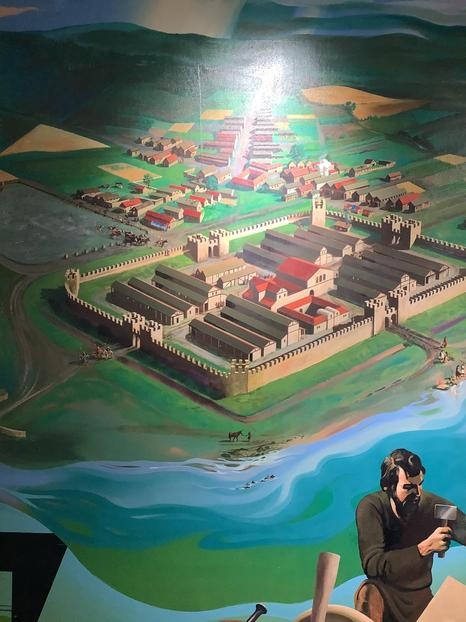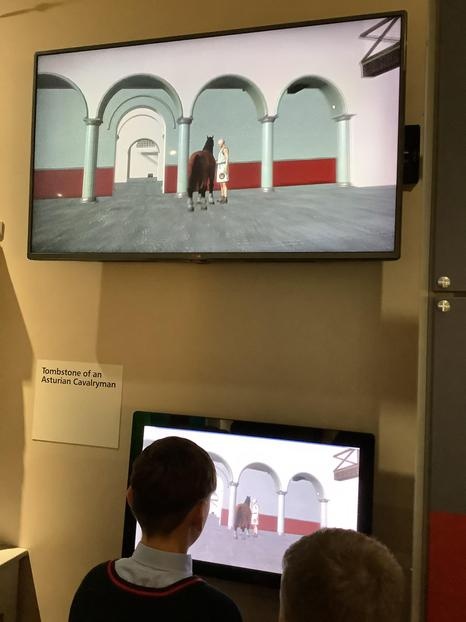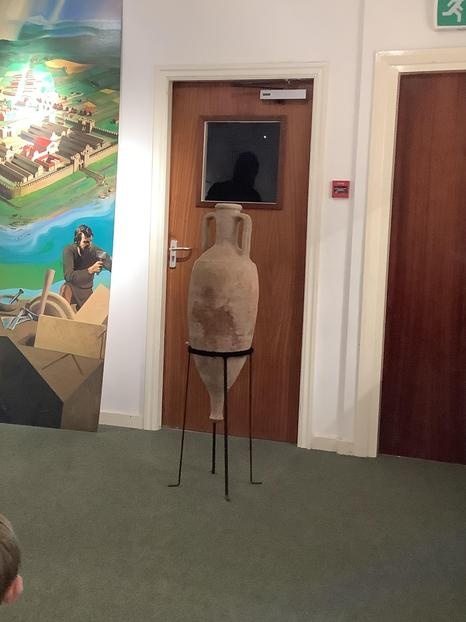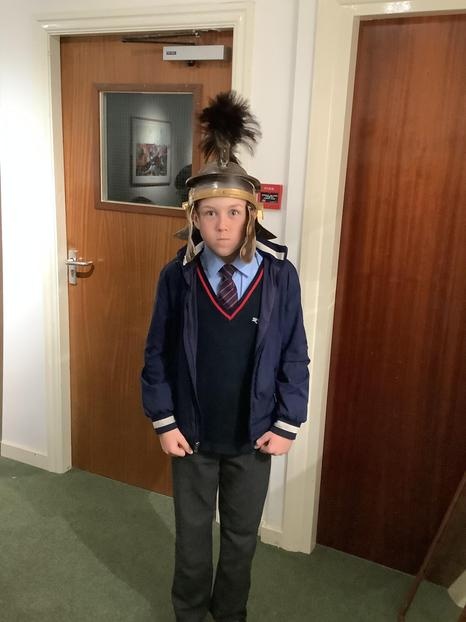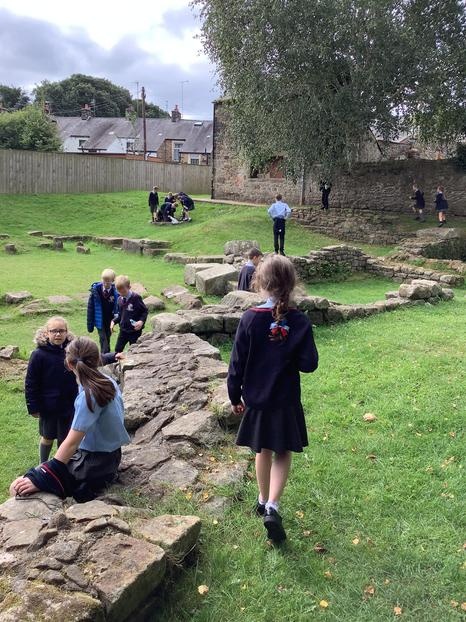History
“Those who do not remember the past are condemned to repeat it.” – George Santayana
|
|
|
Our History subject leader is Mr Gregory.
Intent
At St Joseph’s, we aim for a high quality history curriculum which will inspire in pupils a curiosity and fascination about the Britain’s past and that of the wider world. Our teaching equips pupils with knowledge about the history of Britain and how it has influenced and been influenced by the wider world; know and understand about significant aspects of the history of the wider world like ancient civilisations and empires; changes in living memory and beyond living memory; learn about the lives of significant people of the past; understand the methods of historical enquiry and be able to ask and answer questions. We want children to enjoy and love learning about history by gaining this knowledge and skills, not just through experiences in the classroom, but also with the use of fieldwork and educational visits.
Implementation
In ensuring high standards of teaching and learning in history, we implement a curriculum that is progressive throughout the whole school. History is taught as part of a half-termly topic, focusing on knowledge and skills stated in the National Curriculum. At St Joseph’s, we ensure that history has the same importance given to it as the core subjects, as we feel this is important in enabling all children to gain ‘real-life’ experiences. For example, using the local area to look at how buildings have changed in Key Stage 1, to comparing the similarities and differences in environments and communities in Lower Key Stage 2, through to looking at an in depth study of the locality in Upper Key Stage 2.
EYFS
Pupils have a grasp and understanding of the terms past and present and future. Children need to begin to understand that things that have happened in their own lives are classified as in the past and forms their own history, personally and in the context of their generation. We encourage visitors such as parents and grandparents to talk about their childhood and how things were different in the past.
KS1
Pupils should develop an awareness of the past, using common words and phrases relating to the passing of time. They will know where the people and events they study fit within the chronological framework and be able to identify similarities and differences between ways of life in different periods. They will be exposed to a wide vocabulary of everyday historical terms. They should ask and answer questions using parts of stories and other historical sources to show that they know and understand key features and events. They should understand some ways in which we find out about the past and identify different ways in which it is represented and by whom.
KS2
Pupils should continue to develop a chronological secure knowledge and understanding of British, local and world history, establishing clear narratives within and across the periods they study. They should note connections, contrasts and trends overtime and develop the appropriate use of historical terms. They should regularly address and sometimes devise historically valid questions about change, cause similarity, difference and significance. They should construct informed responses that involve thoughtful selection and organisation or relevant historical information. They should understand how our knowledge of the past is constructed from a range of sources, investigating and questioning these sources where appropriate.
Impact
The impact and measure of this is to ensure that children at St Joseph’s are equipped with historical skills and knowledge that will enable them to be ready for the curriculum at Key Stage 3 and for life as an adult in the wider world. We want the children to have thoroughly enjoyed learning about history, therefore encouraging them to undertake new life experiences now and in the future.
Progression in History
History at St Joseph's
